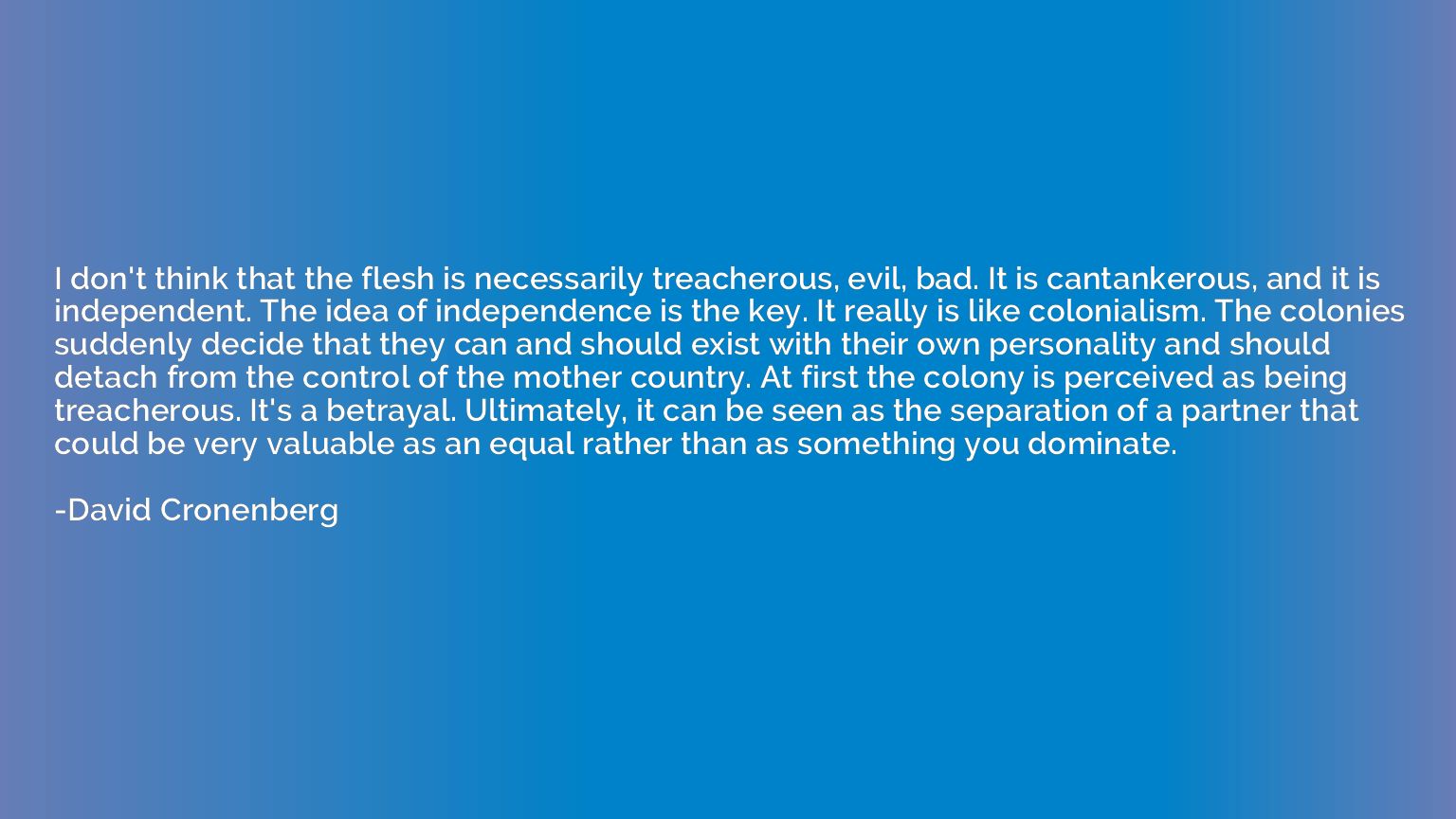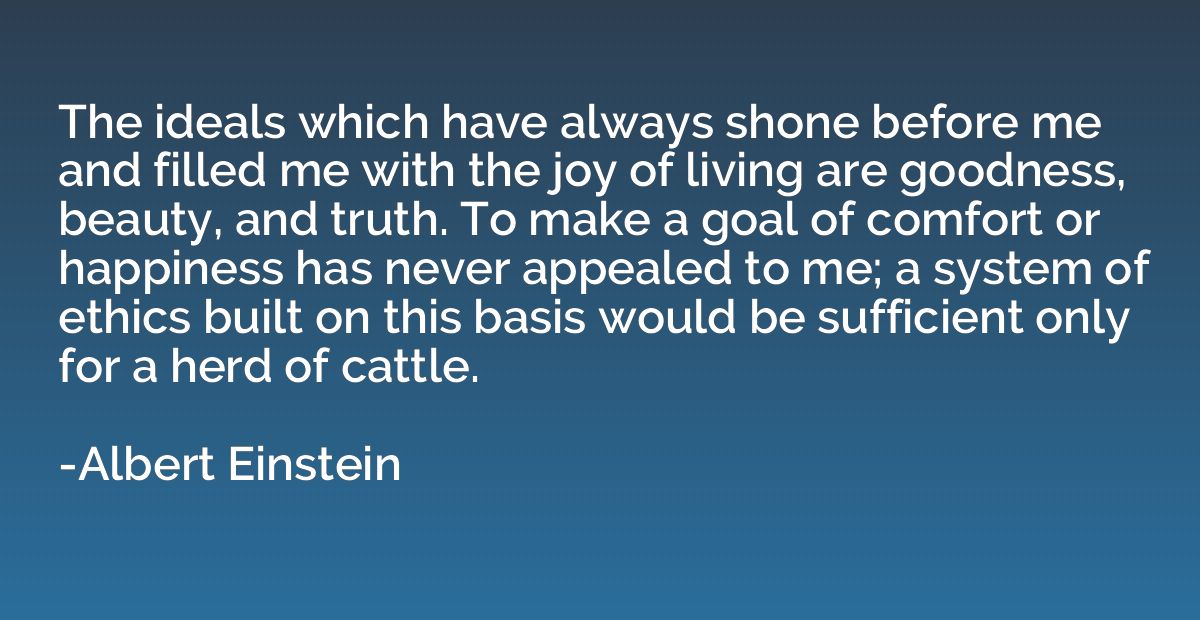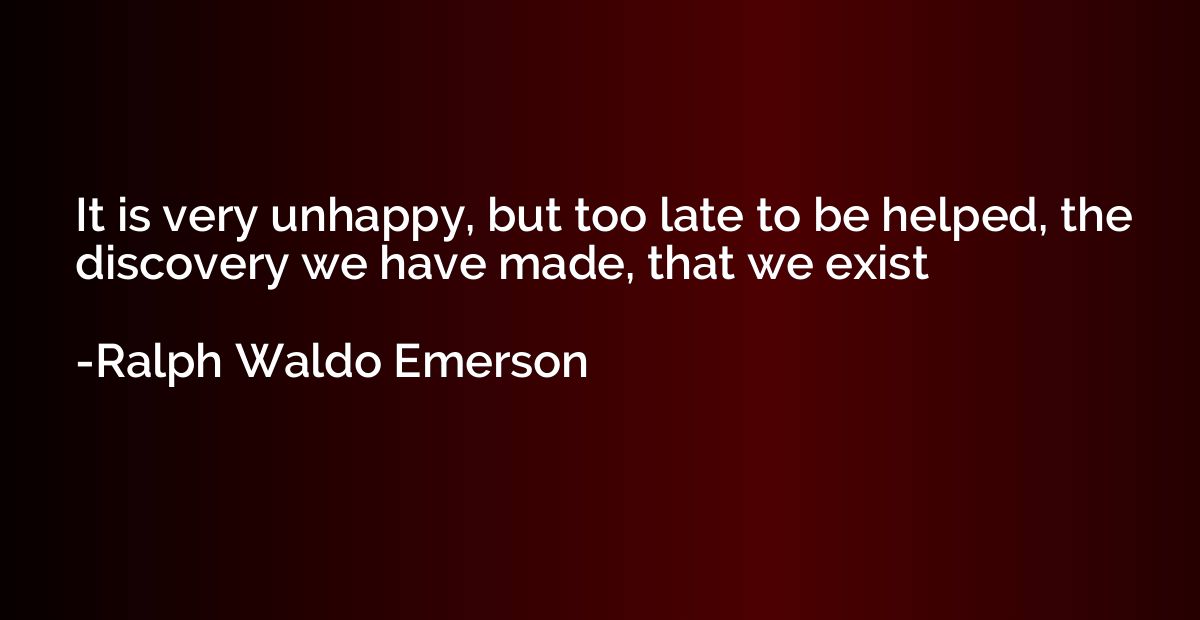Quote by David Cronenberg
I don't think that the flesh is necessarily treacherous, evil, bad. It is cantankerous, and it is independent. The idea of independence is the key. It really is like colonialism. The colonies suddenly decide that they can and should exist with their own personality and should detach from the control of the mother country. At first the colony is perceived as being treacherous. It's a betrayal. Ultimately, it can be seen as the separation of a partner that could be very valuable as an equal rather than as something you dominate.

Summary
This quote suggests that the body, symbolized by "the flesh," should not be considered inherently treacherous or evil. Instead, it implies that the body is autonomous and independent, similar to colonies seeking independence from their mother countries. While initially viewed as a betrayal, this separation can be perceived as the liberation of an equal partner with its own unique value. In essence, the quote challenges the notion of dominating and controlling the body, suggesting that it should be embraced as an equal and respected entity.














